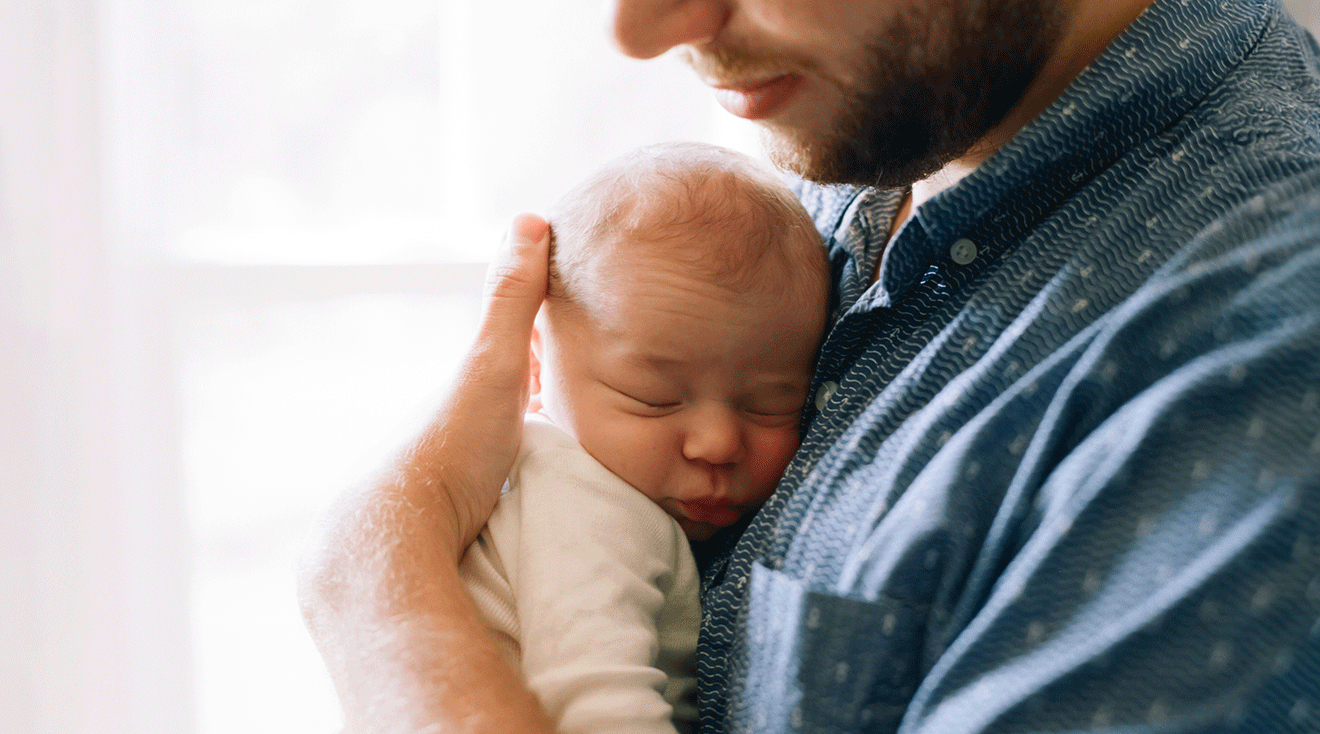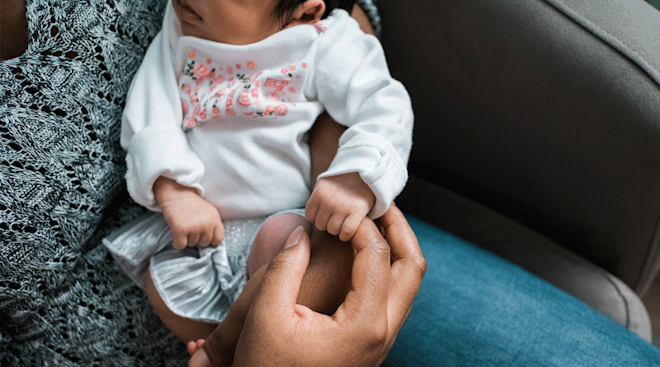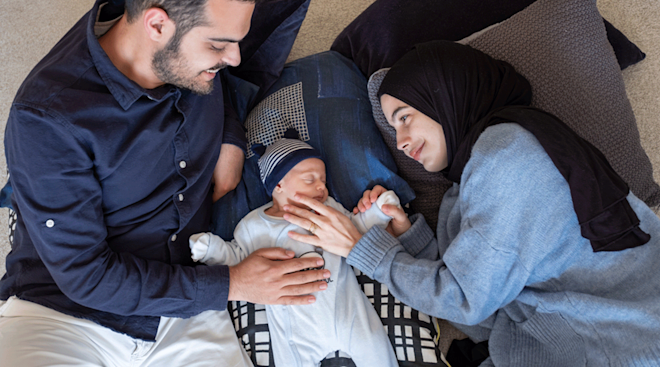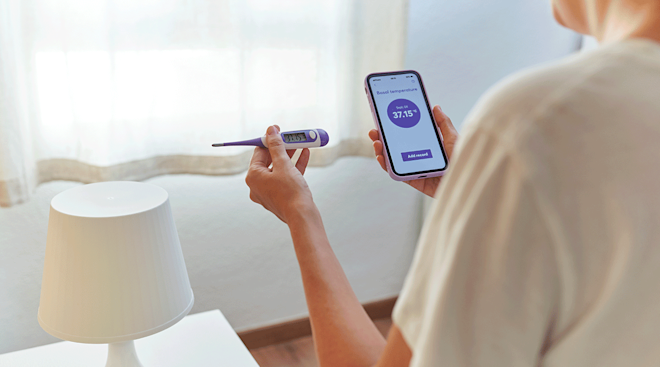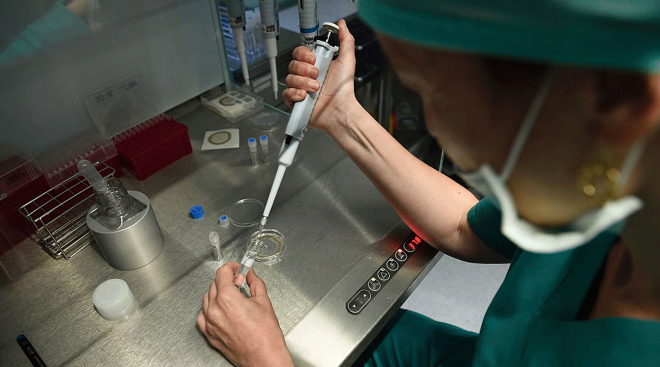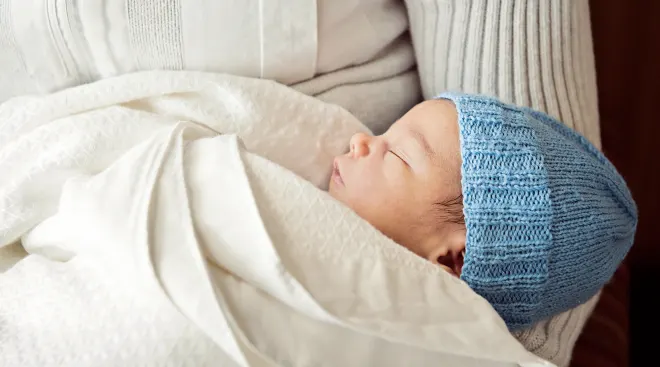A Dad and Doc on Navigating the Options as a Rainbow Family
The landscape of LGBTQ+ family building is constantly evolving. While significant strides have been made in recent years, the legal and social realities people face still vary greatly depending on family structure and location. There’s no one-size-fits-all guide to building a family for same-sex couples and individuals.
An analysis of the current state of LGBTQ+ parental rights in the United States requires a focus on the complexities of second-parent adoption, the patchwork of parentage laws across states and the diverse pathways to building a family for LGBTQ+ people.
Having built my own family through egg donation and gestational surrogacy, a process which required legal counsel to secure parental rights for myself and my partner, I know how daunting the landscape for LGBTQ+ parents can be.
During the labor and delivery of our second child, instead of simply enjoying the experience, my partner and I had to navigate the stress of knowing that the state our surrogate lived in didn’t allow compensated surrogacy at the time. The legal complexities of this process can be confusing and frustrating—even though progress has been made.
As a reproductive endocrinologist, my expertise lies in the medical aspects of LGBTQ+ family building, and not in the complex legalities of the process. However, I believe it’s critical that all prospective parents understand the importance of getting appropriate legal counsel from an attorney well-versed in parentage law to protect their growing family. To that end, what follows doesn’t constitute legal advice, but rather a general overview of LGBTQ+ parentage with the goal of raising awareness of the relevant issues.
Second-parent adoption, the legal process allowing a non-biological parent in an LGBTQ+ relationship to secure parental rights over a child, remains a critical hurdle for many families. While all 50 states now recognize some form of second-parent adoption, procedures and legal requirements differ significantly from state to state.
Some states offer a streamlined process, allowing for a second-parent adoption to be finalized alongside the initial adoption. Others require a separate legal proceeding, often involving a home study and court appearances. Additionally, some states have residency requirements, meaning the family must live in the state for a certain amount of time before pursuing second-parent adoption.
Second-parent adoption is required in most cases when only one parent is biologically related to a child, which is very common for LGBTQ+ couples. Without a second-parent adoption, the non-biological parent may lack legal rights and responsibilities regarding the child, depending on the state they live in. This means they may not be able to make medical decisions for their child, consent to important procedures, make schooling or travel decisions, share custody in case of separation, obtain permission to visit a child in the hospital or inherit parental rights if the biological parent passes away.
Legal recognition for both parents will likely become even more important as the political landscape continues to shift in the US. Legal recognition is also essential for LGBTQ+ families who travel internationally, particularly in countries that don’t recognize or respect parental rights without clear documentation.
Second-parent adoption provides an additional layer of security by ensuring both parents have legal standing and are recognized as such. This can be especially important in situations like divorce, illness, relocation and international travel. There are some circumstances where second-parent adoption may be considered essential to protect your family unit. These can include:
Sperm or Egg Donation
In some states, if a same-sex couple uses a sperm or egg donor to conceive a child, the non-biological parent will need a second-parent adoption to secure legal parental rights. In other states, uniform parentage acts (laws) would not require a second-parent adoption. However, given the current political climate in the United States, most reproductive attorneys recommend a second-parent adoption for the security of your family.
Gestational surrogacy
Depending on the legal process of the state the child is born in, second-parent adoption may be necessary to establish legal parentage for the non-genetic parent—and sometimes the genetically linked parent as well. Some states still consider the person giving birth to be the “mother,” even without a biological connection or intention to parent the child.
Step-parent adoption
While not exclusive to LGBTQ+ families, second-parent adoption can be used by a step-parent who wants to establish legal parental rights, even if the biological parent is still involved. It is of utmost importance to consult with an attorney experienced in LGBTQ+ family law about these issues. As state laws change frequently, retaining legal counsel will help ensure your family is protected. To find appropriate legal counsel, begin by exploring the Academy of Adoption and Assisted Reproduction Attorneys, and the American Bar Association.
Efforts are underway to create more uniformity in second-parent adoption laws, but progress is slow. Organizations like the Human Rights Campaign, Lambda Legal and Family Equality advocate for legislative changes to simplify this process and make it more accessible to all LGBTQ+ families. Be prepared to marshal financial resources, too. The price of second-parent adoption can be a barrier to families as legal fees and court costs create a financial burden.
The legal landscape surrounding LGBTQ+ parentage is far from consistent. Across the United States, parental rights laws vary wildly, due in part to the following factors:
Lack of federal legislation
There are no comprehensive federal laws explicitly addressing LGBTQ+ parentage rights. This leaves it up to individual states to determine their own laws and policies.
Differing state laws
Some states have passed legislation that explicitly recognizes and protects LGBTQ+ parental rights, including marriage equality, adoption rights and parental presumptions for children born through assisted reproduction. Other states might have more restrictive laws or even outright discriminatory policies.
Judicial interpretation
Court decisions also play a role in shaping the legal landscape. While the Supreme Court’s ruling in Obergefell v. Hodges legalized same-sex marriage nationwide, it did not fully address all parental rights issues, leaving room for interpretation at the state level.
Social and political factors
Public opinion and political ideologies vary widely across the country, influencing the types of laws that are passed and how they are enforced. States with more conservative populations or legislatures may be less likely to recognize LGBTQ+ parental rights compared to more progressive states.
Religious influences
Religious beliefs can also play a role in shaping attitudes and laws regarding LGBTQ+ families. Some religious groups still oppose same-sex marriage and parenting, which can influence political and legal decisions in certain states. As a result of these factors, LGBTQ+ individuals and couples face a patchwork of legal protections and challenges when it comes to building and protecting their families. Some states offer comprehensive legal recognition and support, while others present significant obstacles and uncertainties. This highlights the importance of legal consultation and advocacy to navigate the complexities of LGBTQ+ family building in different states.
Now that we’ve explored why securing parental rights is so critical for those in the LGBTQ+ community, let’s break down the three main legal frameworks for establishing parentage:
Second-parent adoption
As discussed above, this is the most common path, but it requires navigating individual state laws and procedures.
Parentage by estoppel
This legal doctrine allows a non-biological parent to establish parental rights if they’ve held the role of a parent and the child has relied on that relationship. However, in many attorneys’ opinion, parentage by estoppel can be a risky and uncertain path, as its application varies by state and can be challenged in court.
Pre-birth orders
These orders, available in some states, allow non-biological parents to establish legal parentage before a child’s birth. This can be helpful for same-sex couples using assisted reproductive technologies (ART) or gestational surrogacy.
The lack of national uniformity in parentage laws creates a complex situation for LGBTQ+ families considering moving or already living in states with less progressive legal frameworks. It’s crucial for LGBTQ+ parents to research the specific laws in their state and consult with an attorney specializing in LGBTQ+ family law.
Despite legal hurdles, LGBTQ+ individuals and couples are continuing to build their families through various pathways to parenthood, such as adoption, donor conception and surrogacy and foster care and kinship care.
While significant progress has been made, LGBTQ+ families still face ongoing legal and social challenges. Continued advocacy efforts are crucial to ensure all LGBTQ+ individuals have equal access to parenthood. This includes pushing for nationwide reforms to simplify second-parent adoption, promoting legislative changes to create more consistent parentage laws across states and working with adoption and surrogacy agencies to ensure LGBTQ+ inclusion.
Increasing visibility of LGBTQ+ families through media representation (including social media) can help create a more inclusive environment and challenge existing stereotypes. LGBTQ+ parenting is about love, intention and a commitment to self-educate. By working toward legal and social equality, we build a brighter future where all families, regardless of their structure, are valued and supported.
As any LGBTQ+ parent will tell you, though the journey to expanding your family may sometimes feel overwhelming, the joy that parenthood brings far outweighs all it takes to make this dream come true.
About the author: Dr. Mark P. Leondires is the founder and Medical Director of Illume Fertility, the founder of Gay Parents To Be, a family-building resource hub for the LGBTQ+ community, and a founder at Gays with Kids, the world’s largest resource for gay, bi and trans dads and dads-to-be. He is board-certified in both Obstetrics and Gynecology and Reproductive Endocrinology and Infertility.
Please note: The Bump and the materials and information it contains are not intended to, and do not constitute, legal advice and should not be used as such. You should always consult with your legal advisors about your specific circumstances. This information contained herein is not necessarily exhaustive, complete, accurate or up to date and we undertake no responsibility to update. In addition, we do not take responsibility for information contained in any external links, over which we have no control.
Plus, more from The Bump:
Academy of Adoption and Assisted Reproduction Attorneys, Find an Attorney
Learn how we ensure the accuracy of our content through our editorial and medical review process.
Navigate forward to interact with the calendar and select a date. Press the question mark key to get the keyboard shortcuts for changing dates.
































